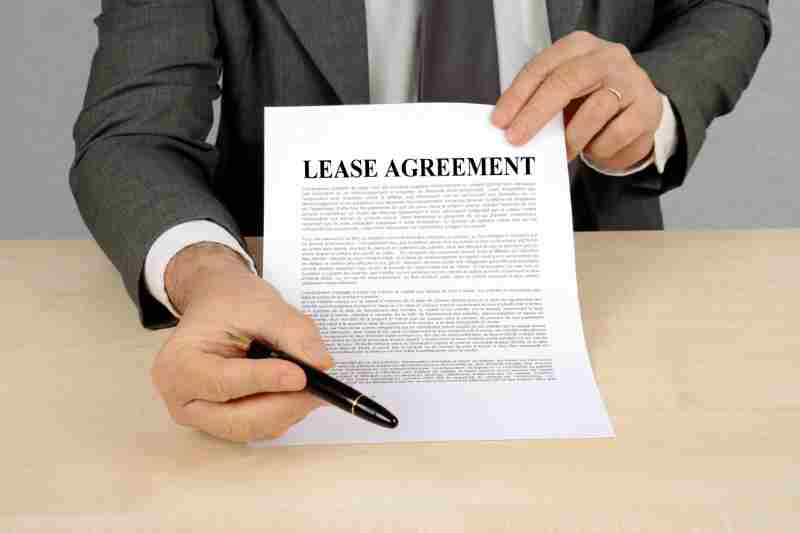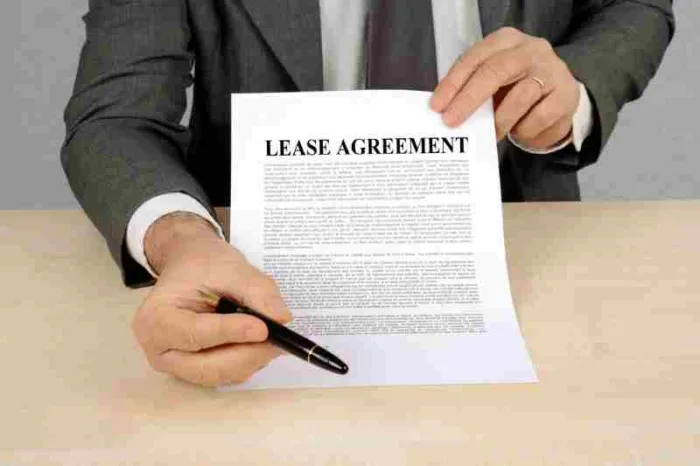
Disclaimer: This content is for informational purposes only, you should not construe any such information as legal, tax, investment, financial, or other advice. Nothing contained on our site constitutes a solicitation, recommendation, endorsement, or offer by ButterflyMX or any third-party service provider. ButterflyMX is not a financial adviser. You should always seek independent legal, financial, taxation, or other advice from a licensed professional.
Researching real estate financing can be a lot of work. And looking for financing with the most opportunity for steady income can be even harder. But if you’re looking for an investment with fewer responsibilities, a commercial ground lease might be the ideal choice.
A ground lease is a commercial lease most often used to invest in properties without existing buildings. To find out why ground leases could be a good investment, keep reading. We’ll cover the pros and cons of this type of lease, plus alternative leases you can look into.
In this post, discover:
- What is a ground lease?
- Pros and cons of commercial ground leases
- Is a ground lease a good investment?
- Commercial lease alternatives
What is a ground lease?
A ground lease is a tenant/landlord agreement that states a tenant can build on an undeveloped piece of land during the leasing period. In most cases, once the leasing period ends, the landlord retains property ownership.
Notably, ground leases are extremely long-term. Most ground leases range from 50 to 99 years.
Most people agree to this kind of lease because it affords them the least amount of hands-on property management. For example, many business franchisees may utilize a ground lease agreement because it creates an opportunity for a steady income.
Different types of ground leases
The two types of ground leases are subordinate leases and unsubordinate leases.
A subordinate lease means the landlord takes a lower cut and places the lending bank higher in priority. This is usually chosen if the landlord doesn’t want to assume responsibility if the tenant defaults on their loan.
An unsubordinate lease is where the landlord decides to keep the higher claim on the property in case of tenant default. As a result, landlords cannot take ownership of the land if the tenant defaults.
Who owns the building in a ground lease?
In a commercial ground lease agreement, the tenant owns the building while the landlord owns the land on which it’s built.
Furthermore, the tenant owns any improvements made upon a piece of land.
Pros & cons of commercial ground leases
Before entering any kind of legal agreement with someone, you must know the benefits and drawbacks of the document you’re signing.
Pros of a ground lease:
- Great location. Sometimes it’s difficult to find prime real estate when you’re searching in a highly competitive area. In this case, a ground lease would likely help you get a high-traffic location without the added expenses.
- Lower tax burden. In most cases, the rent for this type of lease is tax deductible. This means that the tenant will have tax benefits from real estate investing.
- No down payment. Are you new to investing? Or maybe you just don’t have the full down payment amount. If so, a ground lease may be for you. Most commercial ground leases don’t require a full down payment, while other financing options do.
Cons of a ground lease:
- Higher cost. Tenants are usually expected to fork over costs for insurance, construction, fees, and much more. So, a ground lease can sometimes be a costly financial option.
- Less flexible. Some landlords require their tenants to have potential changes on the property approved by them. This can be frustrating and time-consuming. So, if you choose a ground lease, be direct about what you expect before signing papers.

Is a ground lease a good investment?
Because a commercial ground lease is a long-term investment, it offers quite a bit of stability to both tenants and landlords. This is perfect for people wanting to get their foot in the door of real estate investing and development without the instability of changing leases.
In contrast, they can also lock in tenants who are interested in diversifying their real estate investments.
In all, whether it’s a good investment heavily depends on what the tenant hopes to achieve. As always, consult a legal expert before entering into any permanent agreements with landlords or financing firms.
Commercial lease alternatives
If a ground lease doesn’t seem right for you, there are plenty of other commercial leases to choose from. Each one has its own advantages and disadvantages and is beneficial to different types of property investment.
3 commercial lease alternatives include:
1. Net lease
With a net lease, the tenant is responsible for paying a majority of the financial obligations, including rent, insurance, and repairs.
However, with net leases, tenants also enjoy a lot more flexibility and decision-making power because of their financial contribution.
2. Gross lease
A gross lease agreement is one in which the tenant pays a flat rental rate while the landlord covers most of the operations costs. If you’re looking to pay less out of pocket, this may be the leasing option for you.
In some cases, there are negotiations for how much the landlord will pay versus how much the tenant will take on.
Discover more about commercial real estate development:
3. Percentage lease
With a percentage lease, the tenants agree to pay a flat rental rate plus a percentage of their monthly sales. Most of the time, you’ll find percentage lease agreements among retail and other revenue-generating businesses.
Takeaway
- A ground lease is a lease that allows a tenant to build on a leased piece of land that the landlord owns.
- The pros include a great location, a lower tax burden, and no down payment. The cons include higher out-of-pocket costs and less flexibility.
- A ground lease may be a good investment if you want a long-term commitment and have consulted a legal professional.
- Three commercial lease alternatives include a net lease, gross lease, and percentage lease.







